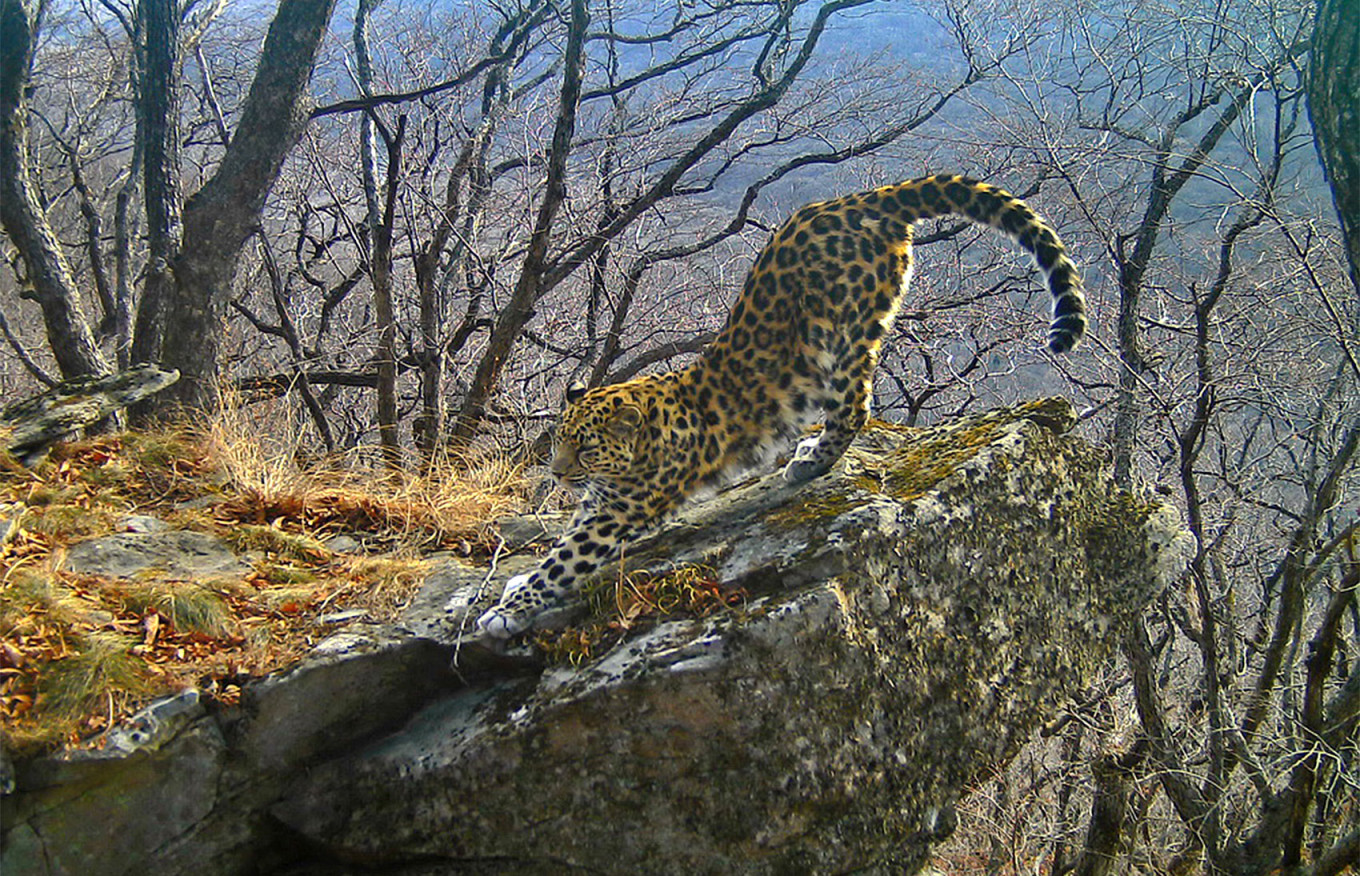Russian authorities have approved a draft agreement with China to establish an international protected area for rare tigers and leopards, the Russian Natural Resources Ministry said Tuesday.
The proposed Russian-Chinese nature reserve — called Land of Big Cats — will encompass habitats in the southwest of Russia’s Primorye region and the mountainous region of northeastern China, according to the draft agreement.
The two countries are expected to finalize the deal by the end of this year.
“Nature knows no boundaries, and it is a very difficult task to preserve a rare species of animal, if it is a border [species], in a single state. Therefore, today we are strengthening international cooperation,” Natural Resources Minister Alexander Kozlov said in a statement.
Ties between Moscow and Beijing have strengthened in recent years, with President Vladimir Putin and his Chinese counterpart Xi Jinping hailing their “no-limits” partnership last year.
The new reserve will comprise already established protected areas of the two bordering countries — Russia’s Land of the Leopard national park and Kedrovaya Pad nature reserve, as well as China’s Northeast National Tiger and Leopard Park.

The ministry said that the aim of Land of Big Cats is to enable wild animal migration, to cooperate with China in fighting poaching and forest fires, and to conduct joint scientific research, environmental monitoring and educational activities.
The ministry estimated that the protected areas on the Russian side are currently home to around 48 Amur tigers, an endangered species on the IUCN Red List and the Russian Red Book.
Some 125 Amur leopards — which are being reintroduced to areas where they were previously wiped out by human activity and deforestation — also inhabit the area.
Minister Kozlov added that the big cats would receive international protection on the territory covering 1.75 million hectares, more than half the size of Belgium, under the deal.
The initiative is the result of a Russian-Chinese working group on transboundary protected natural areas and conservation of biological diversity.
An independent expert in Russian protected areas conservation, who chose to stay anonymous given the potentially sensitive nature of the topic, told The Moscow Times that cross-border cooperation in biodiversity conservation is useful if one wants to protect nature in a systematic way.
“The initiative will be useful if it really works, and does not just stay on paper,” the expert said. “But for now it is hard to predict. Such agreements sometimes work, but at other times could be limited to academic trips only.”

The move to establish Land of Big Cats comes amid regular attempts by authorities to weaken the protected status of natural territories in other Russian regions for the sake of economic development.
In late July, the Natural Resources Ministry proposed opening up some 20% of Sochi National Park — a protected area of almost 2,000 square kilometers near the site of the 2014 Winter Olympics — to industrial development.
If these changes, which are currently under discussion, come into force, it will be possible to extract minerals, disturb the soil and waters, drive off-road vehicles, build industrial and infrastructure facilities, and conduct other activities in the national park.
The independent protected areas expert told The Moscow Times that the initiative in Sochi National Park breaches federal laws on environmental protection If the draft regulation is implemented, the most valuable sections of the park will be built up and lose all conservation value, the expert said.
Commenting on the apparent disparity between establishing new protected areas in one part of Russia and threatening a national park in another, the expert said that the authorities only declare their commitment to conservation efforts when it is convenient and does not conflict with the interests of business.
“If there are specific economic interests, then everything is decided differently, and one can witness attacks on already existing protected territories, or the blocking of the creation of new ones,” the expert said.